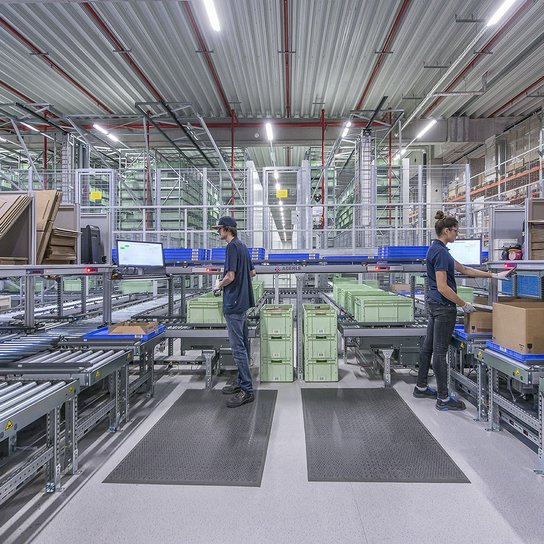Warehouses are rapidly automating material handling operations, and system integrators (SIs) are leading the charge. Despite market uncertainty caused by tariffs and global conflict, the fundamental need for automation continues to push the market forward. SIs have experienced strong growth in recent years, and global revenues are expected to surpass US$100 billion by 2030, according to global technology intelligence firm ABI Research.

"SIs are playing an increasingly important role in the industry as full-package providers," said Ryan Wiggin, Senior Analyst at ABI Research. "In previous years, when automation deployments were limited to the largest companies, many had the capital and capacity to partner directly with individual system providers to deliver Proof of Concept (POC) projects and scale up accordingly. As automation expands into the middle market, companies now need to work with SIs to develop custom, holistic packages and leverage their implementation expertise and support."
Market-leading SIs such as KNAPP, Dematic, and SSI Schaefer are combining OEM systems with partner solutions to deliver end-to-end automation. More pure-play SIs, including Fortna and Bastian Solutions, offer greater system flexibility by integrating best-in-breed technologies from companies such as Geek+, AutoStore, and Hai Robotics.
E-commerce, pharmaceutical, and post and parcel organizations were among the earliest adopters of material handling automation. Retail has seen more recent growth, with food and beverage companies following closely behind. While third-party logistics (3PL) providers have faced challenges scaling automation, significant investment is expected in the short to medium term. Global SI revenues are projected to grow at a compound annual growth rate (CAGR) of 23% in retail, 25% in food and beverage, and 22% in 3PL through 2032.
"Software is becoming an increasingly crucial differentiator among leading Sis," Wiggin said. "With integration and Return on Investment (ROI) concerns, seamless orchestration between autonomous systems and the ability to continuously optimize workflows is becoming the primary Unique Selling Proposition (USP)."
These findings are from ABI Research's Smart Warehousing: System Integrators (SI) for Material Handling Automation market data report. This report is part of the company's Warehousing & Fulfillment research service, which includes research, data, and ABI Insights.





.png)
%20(22).png)
%20(20).png)
%20(19).png)
%20(18).png)
%20(2).png)
%20(4).png)
%20(5).png)
%20(10).png)
.png)
%20(1).png)
%20(10).png)
%20(8).png)
%20(7).png)
%20(2).png)
.png)
%20(1).jpg)
%20(6).png)
%20(5).png)
%20(4).png)
%20(3).png)
%20(1).png)
.png)



.png)

%20(1).png)
.png)
.png)
%20(2).png)
.png)

.png)












